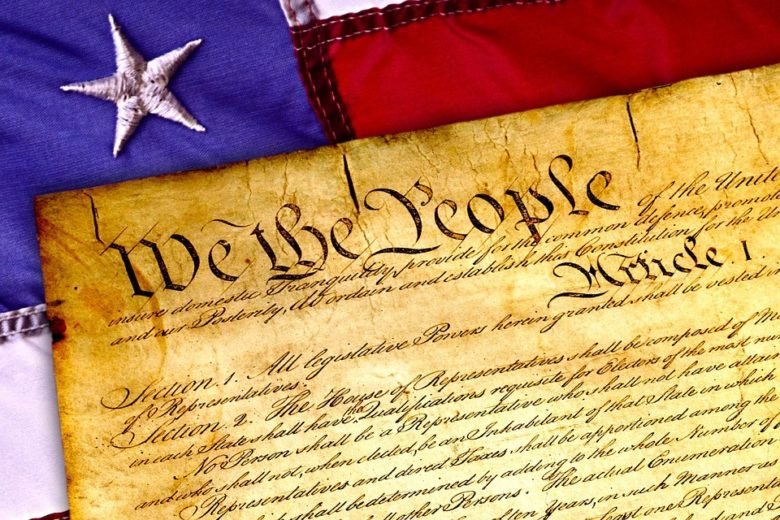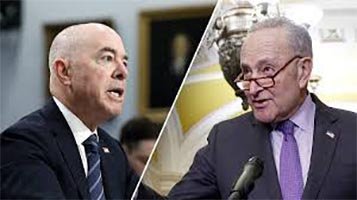 You may find yourself tempted to read a bill recently introduced in Congress, more than once. And then you might feel obliged to share it—no, shout about it—with as many people as you know who care about upholding their right to personal privacy.
You may find yourself tempted to read a bill recently introduced in Congress, more than once. And then you might feel obliged to share it—no, shout about it—with as many people as you know who care about upholding their right to personal privacy.
So what’s so special about this particular bill?
In early March, a group of bipartisan senators introduced Senate Bill 686, entitled “Restricting the Emergence of Security Threats that Risk Information and Communications Technology Act” or, simply put, the “RESTRICT Act.”
The proposed legislation aims to tackle “foreign adversaries” connected to Internet platforms with at least one million active U.S. users annually, such as TikTok, which may pose “risks” to the safety of Americans or U.S. national security.
Those considered “foreign adversaries” include China, Russia, Iran, North Korea, Cuba and Venezuela. For reasons we’ll learn, the bill has been dubbed the “TikTok Ban.” However, it aims to accomplish much more than banishing the Chinese-owned social media app from the eyes of young, impressionable Americans or safeguarding homeland security.
Since the launch of TikTok in 2017, the short video-sharing app has come under congressional scrutiny primarily because it is owned by Chinese company ByteDance—and enacted Chinese laws compel ByteDance to support and facilitate the ruling Chinese Communist Party (CCP)’s access to the collection, transmission and storage of user data. Such laws since 2017 include National Intelligence Law, Cryptology Law and Data Security Law.
While TikTok was banned on federal government devices in December 2022 and restricted on multiple public universities’ Wi-Fi in primarily Republican states, several bipartisan lawmakers in Congress have called for an absolute ban of the app that attracts more than 150 million users nationwide.
Now, the RESTRICT Act would allow the U.S. Department of Commerce to “identify, deter, disrupt, prevent, prohibit, investigate, and mitigate” online activity on any platform connected to governments considered “foreign adversaries.”
Essentially, the proposed legislation, if enacted into law, would provide the ability to ban any online app originating from a country whose government has “engaged in a long-term pattern or serious instances of conduct significantly adverse to the national security of the United States or the security and safety of United States persons.”
And it’s not like RESTRICT Act is causing partisan friction, as with other social and economic issues. The bill’s sponsor, Democratic Virginia Senator and Chair of the U.S. Senate Select Committee on Intelligence Mark R. Warner, told CBS News in a late March interview that 11 Republicans and 11 Democrats support Senate Bill 686, and that he believes the Biden administration is “very in favor” of the bill.
So let’s get something straight about this proposed legislation with bipartisan support. If another country is deemed a “threat,” then any online platform originating from that country could be banned from operating in America. Now, insight into the handling of these bans is beyond the limits of the Freedom of Information Act. Moreover, any U.S. resident using the Internet could be monitored regardless of their access route—whether mobile networks, wireless local area networks, cable access points and much more.
Therefore, consider the following hypothetical scenario. Suppose someone uses a virtual private network (VPN) to access a prohibited app or social network. Might that individual be deemed to “evade or circumvent” the restrictions put in place, considered a “threat” to U.S. national security and fined up to $1 million or be punished with a maximum of 20 years in federal prison?
Stated under “Section. 11. PENALTIES” in Senate Bill 686:
“The Secretary may impose the following civil penalties on a person for each violation by that person of this Act or any regulation, order, direction, mitigation measure, prohibition, or other authorization issued under this Act:
(1) A fine of not more than $250,000 or an amount that is twice the value of the transaction that is the basis of the violation with respect to which the penalty is imposed, whichever is greater.
A person who willfully commits, willfully attempts to commit, or willfully conspires to commit, or aids or abets in the commission of an unlawful act described in subsection (a) shall, upon conviction, be fined not more than $1,000,000, or if a natural person, may be imprisoned for not more than 20 years, or both.”
The “Secretary” described in the bill refers to the U.S. Secretary of Commerce, who is not an elected official but an individual appointed by the President. And while the RESTRICT Act does not explicitly mention VPN usage, what else might they be referring to when describing civil and criminal penalties for accessing a restricted platform?
Warner’s communications director says this isn’t the case. Rachel Cohen told Newsweek in late March that the criminal penalties only apply when:
“Under the terms of the bill, someone must be engaged in ‘sabotage or subversion’ of communications technology in the U.S., causing ‘catastrophic effects’ on U.S. critical infrastructure, or ‘interfering in, or altering the result’ of a federal election.”
Cohen went on to say, presumably to appease any concerns, that the bill “is squarely aimed at companies like Kaspersky, Huawei and TikTok that create systemic risks to the United States’ national security, not individual users.”
Even if Warner’s bill does not intend to apply criminal provisions to Americans using VPNs, the list of forbidden activities is much broader than what Cohen states, making it hard to cast aside suspicion.
After all, can we recall a time when laws targeting foreign nationals engaged in “terrorist activity” have been used by federal agencies to monitor U.S. citizens purely on the grounds of suspicion or non-violent criminal offences that are less severe than felonies or misdemeanors?
Rewind a decade to 2013. A former systems analyst contractor for the CIA, Edward Snowden, leaked information about U.S. and U.K. surveillance programs to various news publications. More specifically, the U.S. National Security Agency was collecting the telephone records of tens of millions of Americans, coupled with the U.K.’s intelligence organization, Government Communications Headquarters. Consequently, Snowden was charged with espionage by the U.S. government and fled the country.
Rewind more than two decades to September 11, 2001. Following the dramatic attacks on U.S. soil, Congress enacted the “Patriot Act” by overwhelming, bipartisan margins only seven weeks later. This law fundamentally transformed surveillance in the United States, expanding the federal government’s authority to monitor Americans’ phone and email communications, collect their bank and credit card information, and track Internet activity—all in the name of U.S. national security.
Indeed, Section 215 of the Patriot Act allows the FBI to compel any person or institution, be it a private physician, a public college or an Internet service provider, to turn over their patient, student or customer records.
Now, the vague RESTRICT Act is arguably a cause for concern. So, for example, would this bill expand the authority associated with the Patriot Act, allowing the federal government to censor social media posts, shadowban accounts or even block Internet access for individual users?
Thus, branding the bill as the “TikTok Ban” creates the illusion of targeting companies with links to foreign governments, like the CCP, that want to collect and store U.S. citizens’ data. But, if anything, those of us who don’t use TikTok might glance over the bill and may even think it’s a good idea.
Let’s make a clear note that the RESTRICT Act states:
-
“No person may engage in any conduct prohibited by or contrary” to its requirements
-
“No person may cause or aid, abet, counsel, command, induce, procure, permit, or approve the doing of any act prohibited by, or the omission of any act required by any regulation, order, direction, mitigation measure, prohibition, or other authorization or directive issued under, this Act”
-
“No person may solicit or attempt a violation” and “no person may engage in any transaction or take any other action with intent to evade the provisions of this Act”
Might this overbroad language open the door for the federal government to use the RESTRICT Act to curb many activities considered a “threat” to the safety of other Americans? And even if this bill is never employed to strike down a U.S. citizen’s right to use VPNs, it is a profoundly concerning piece of legislation that might prohibit businesses and communication technologies with origins or links to any country deemed a “foreign adversary” and subsequently, limit Americans’ access to a wide range of services, products and even entrepreneurial opportunities.
The congressional hearing with TikTok CEO Shou Zi Chew in late March exposed many points, including members of Congress who own shares in companies in direct competition with TikTok. In contrast, others are far removed from progress in online social media technologies. Furthermore, according to an article by The Washington Post in late March last year, Facebook’s parent company Meta hired a consulting firm to orchestrate a nationwide campaign against TikTok, spurring a sense of urgency toward banning the video-sharing app.
Fortunately, while searching for common ground, a broad range of individuals and groups across the political left, right and libertarians have vocalized their opposition to the RESTRICT Act and banning TikTok, albeit for different reasons.
For example, Republican Kentucky Senator Rand Paul attacked the bill in a late-March op-ed for the Courier Journal. He expressed, “Before banning TikTok, these censors might want to discover that China’s government already bans TikTok. Hmmm . . . do we really want to emulate China’s speech bans?”
Paul went on to quote a stringent point by two technology policy analysts from the Georgia Institute of Technology:
“If nationalistic fears about Chinese influence operations lead to a departure from American constitutional principles supporting free and open political discourse, we will have succeeded in undermining our system of government more effectively than any Chinese propaganda could do.”
Agree/Disagree with the author(s)? Let them know in the comments below and be heard by 10’s of thousands of CDN readers each day!




